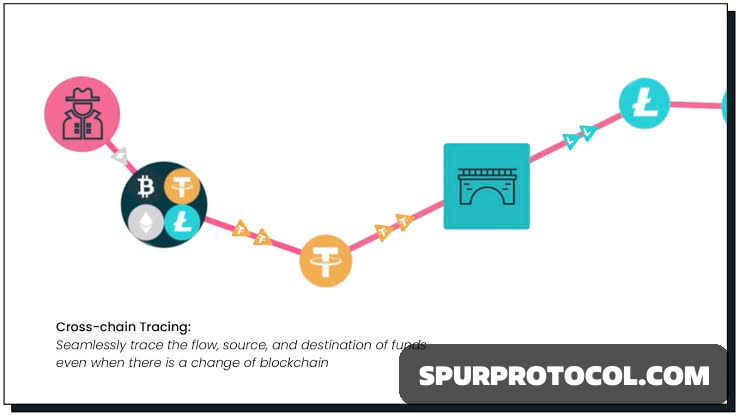Chain Hopping And Crypto Money Laundering
This article exposes how criminals use "chain hopping" to launder money in the crypto world, the challenges of tracing these transactions, and how new technologies are combating these activities.
Go Back

🕒 11:06 AM
📅 May 26, 2025
✍️ By ethangeorge
What is Chain Hopping?
Chain hopping is when criminals move their crypto assets between different blockchains to hide their tracks. They use cross-chain bridges, which are tools that help them transfer funds, making it harder to trace where the money came from.
What Are Cross-Chain Bridges?
Cross-chain bridges allow assets to be moved from one blockchain to another. They were created to make crypto transactions smoother for users. However, criminals use these bridges to make illegal money transfers harder to detect.
How Criminals Use Chain Hopping
Criminals transfer assets from one blockchain to another, like from Ethereum to Tron, to erase any trace of illegal activity. This process is similar to laundering money through various small businesses in the real world to make it look clean.
Chain Hopping Methods
To avoid detection, criminals use Layer 2 solutions like side chains and state channels for faster and cheaper transfers. They also use privacy-focused bridges like Thorchain and Secret Network, or decentralized finance (DeFi) aggregators like 1inch and Uniswap to swap assets quickly and anonymously.
Why Cross-Chain Bridges Are Used for Laundering
Since cross-chain bridges allow for anonymous transfers, criminals don’t have to reveal their identity (KYC) or follow anti-money laundering (AML) rules. For example, a privacy bridge like Incognito lets users transfer crypto without showing who they are.
What Are DeFi Mixers?
DeFi mixers mix different users' assets and then send them to new addresses, making it very difficult to trace the original funds. Criminals use these mixers to make their funds even more difficult to track, adding another layer of privacy to their laundering process.
The Future of Chain Hopping
DeFi provides faster and more private transactions than centralized finance (CeFi), making it harder to detect illegal activity. However, new technologies like cross-chain analytics and token transparency are being developed to make tracing these funds easier.
Combating Chain Hopping
Cross-chain bridge developers and blockchain analytics companies are working together to fight money laundering. By sharing information and using new tools to detect suspicious activity, they are making it more difficult for criminals to hide their tracks across blockchains.
